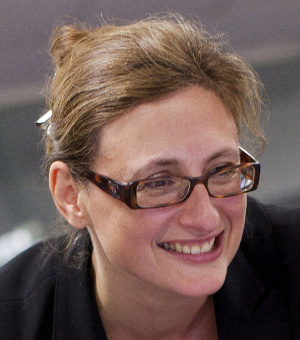Welcome to iFM 2024!
The 19th International Conference on Integrated Formal Methods (iFM) took place on 13–15 November 2024 at the University of Manchester, UK, with co-located workshops scheduled for 11–13 November 2024.
The proceedings are available here:
Thanks to all attendees for coming!

iFM 2024 Awards
The iFM 2024 best paper award is attributed to
by Logan Murphy, Torin Viger, Alessio Di Sandro and Marsha Chechik.
The iFM 2024 distinguished reviewer award is attributed to Katherine Kosaian.
News & Updates
13 Nov 2024 — The conference proceedings have been published online.
17 Oct 2024 — FMAS Virtual-only registration is now open here.
08 Oct 2024 — The PhD Symposium program is now available.
01 Oct 2024 — The FEAR workshop program is now available.
23 Sep 2024 — The main conference program is now available.
17 Sep 2024 — Bios and abstracts for iFM’s invited speakers have been published.
30 Aug 2024 — The PhD Symposium paper submission deadline has been extended to 8 Sep 2024 (AoE).
23 Aug 2024 — Registration is now open, information available here. The deadline for early registration is 19 October.
05 Aug 2024 — The list of accepted papers has been published — congratulations to the authors!
19 Jul 2024 — The Formal Aspects of Computing journal special issue has been confirmed.
03 Jun 2024 — The abstract and paper submission deadlines for iFM have been extended:
- Optional Abstract Submission:
03 June 2024→ 13 June 2024 - Paper Submission:
10 June 2024→ 17 June 2024
- Optional Abstract Submission:
Invited Speakers
We introduce a novel approach to model checking software and hardware that combines machine learning and symbolic reasoning by using neural networks as formal proof certificates. We train our neural certificates from randomly generated executions of the system and we then symbolically check their validity which, upon the affirmative answer, establishes that the system provably satisfies the specification. We leverage the expressive power of neural networks to represent proof certificates and the fact that checking a certificate is much simpler than finding one. As a result, our machine learning procedure is entirely unsupervised, formally sound, and practically effective. We implemented a prototype and compared the performance of our method with the state-of-the-art academic and commercial model checkers on a set of Java programs and hardware designs written in SystemVerilog.

Daniel Kröning is a Senior Principal Applied Scientist at Amazon, where he works on the correctness of the Neuron Compiler for distributed training and inference. Prior to joining Amazon, he worked as a Professor of Computer Science at the University of Oxford and is the co-founder of Diffblue Ltd., a University spinout that develops AI that targets code and code-like artefacts.
He has received the Semiconductor Research Corporation (SRC) Inventor Recognition Award, an IBM Faculty Award, a Microsoft Research SEIF Award, and the Wolfson Research Merit Award. He serves on the CAV steering committee and was co-chair of FLOC 2018, EiC of Springer FMSD, and is co-author of the textbooks on Decision Procedures and Model Checking.
A relatively recent challenge has been to develop symbolic-execution techniques and tools that are functionally compositional with simple function specifications that can be used in broader calling contexts. The technical break-through came with the introduction of separation logics for reasoning about partial mutable state, leading to compositional symbolic execution tools being developed in academia and industry. Many of these tools have been grounded on a formal foundation, but either the function specifications are validated with respect to the underlying symbolic semantics of the engine, with no meaning outside the tool, or there is a large gulf between the theory and the implementations of the tools. In this talk, I will introduce a formal compositional symbolic execution engine which creates and uses function specifications from an underlying separation logic and provides a sound theoretical foundation for, and indeed was partially inspired by, the Gillian platform. This is achieved by providing an axiomatic interface which describes the properties of the consume and produce functions for updating the symbolic state when calling function specifications, a technique used by VeriFast, Viper and Gillian but not previously characterised independently of the tool. A surprising property is that our semantics provides a common foundation for both correctness and incorrectness reasoning, with the difference in the underlying engine only amounting to the choice to use satisfiability or validity. We use this insight to extend the Gillian platform with incorrectness reasoning, developing automatic true bug-finding using incorrectness bi-abduction, which our engine incorporates by creating fixes from missing-resource errors. We have shown that the Gillian implementation of the consumer and producer functions satisfy the properties described by our axiomatic interface, and evaluate our new Gillian platform by using the Gillian instantiation to C. This instantiation is the first tool to support both correctness and incorrectness reasoning, as well as being grounded on a common formal compositional symbolic execution engine.
This talk is loosely based on the paper “Compositional Symbolic Execution for Over-approximating and Under-approximating Reasoning” by Andreas Lööw, Daniele Nantes Sobrinho, Sacha-Elie Ayoun, Caroline Cronjäger, Petar Maksimović and Philippa Gardner, ECOOP 2024, distinguished paper.

Professor Philippa Gardner has brought scientific and mathematical method to the specification and analysis of large-scale open software systems. She has developed trustworthy mechanisations of language standards, which led to the correction of definitions and formal proofs of properties within the W3C WebAssembly formal specification. Her work includes compositional analysis techniques and well-engineered tools for both semi-automatic verification and automatic detection of true bugs in industrial and open-source software. She has also created program logics for verifying complex concurrent algorithms, resulting in tools now used by hundreds of specialist users. Her contributions represent over three decades of sustained investment, all focussed on achieving machine-proven guarantees about the safety and correctness of real, deployed software, grounded in mathematical foundations.
After completing her PhD thesis at Edinburgh in 1992 and holding research positions in both Edinburgh and Cambridge, Gardner became a lecturer at Imperial in 2001 and a professor in 2009. She held fellowships spanning over twenty years, including a UKRI Established Research Fellowship from 2018 to 2023 at Imperial, and was elected a Fellow of the Royal Academy of Engineering in 2020. She won the British Computer Society Lovelace Medal in 2024.
Many railways interlocking systems are still based on electromechanical solutions. They are hard to understand and costly to modify, and can be considered legacy systems. In this talk I will present the research underlying a novel process for the development of interlocking applications. The proposed methodology is able on one side to analyze and reverse-engineer legacy relay-based interlocking systems, and on the other to support the specification and verification of interlocking procedures by means of a model-based approach. Research challenges include modeling and verification of continuous-time, real-valued transition systems, automated abstraction for reverse engineering and specification mining, automated test generation, and parameterized verification.

Alessandro Cimatti is the director of the Center for Digital Industry at Fondazione Bruno Kessler in Trento, Italy. His research interests include formal verification, model checking, temporal logics, runtime verification, safety assessment, diagnosis and planning. Cimatti authored more than 250 papers in the fields of formal methods and artificial intelligence. For his fundamental works on Bounded Model Checking and on Satisfiability Modulo Theories, Cimatti has received the TACAS 2014 Most Influential Paper award, the ETAPS 2017 Test of Time award and the CAV Award in 2018 and 2021. He has been the leader of several technology transfer projects, including research projects funded by the European Union, the European Space Agency and the European Railway Agency, as well as of industrial collaborations with RFI, SAIPEM and Boeing.
Invited Tutorial
While ensuring the correctness of an implementation based on a formal functional specification provides the strongest guarantee, it can be prohibitively expensive to achieve. In practice, a combination of formal methods is commonly employed to attain an appropriate level of assurance. This includes static analyses to ensure the absence of runtime errors, deductive verification for functional correctness, and dynamic verification for components that cannot be proven through deductive verification. Frama-C is a source code analysis platform designed for the verification of large-scale programs written in ISO C source code. It offers comprehensive support for the integration of formal methods, offering users a set of plug-ins that facilitate static and dynamic analysis of safety-critical and security-critical software. Furthermore, the collaborative verification capabilities are achieved through the integration of these plug-ins on a shared kernel and their adherence to a standardized specification language known as ACSL (ANSI/ISO C Specification Language). This tutorial introduces Frama-C with a focus on the WP plug-in for deductive verification. We illustrate WP on several examples taken from Contiki, a lightweight operating system for the Internet of Things. (Slides (PDF), Exercises (zip file))

Frédéric Loulergue obtained his PhD in Computer Science from the University of Orléans in 2000 and his Habilitation in Computer Science from Université Paris Val-de-Marne in 2004. He is currently a full professor at Université d’Orléans after being a full professor at Northern Arizona University, Flagstaff, USA. His research interests include the correctness of program and component software properties obtained by construction via language design or derivation from specifications, or obtained a posteriori by static analysis or deductive verification; applied formal methods in the context of security and the Internet of Things. Software associated to his research work include SyDPaCC, a Coq framework for the systematic development of programs for scalable computing. He is a member of the editorial board of Scalable Computing: Practice and Experience and the Journal of Computer Languages (COLA). He founded and leads the Language, Modeling and Verification (LMV) research team at LIFO. Web site: frederic.loulergue.eu


